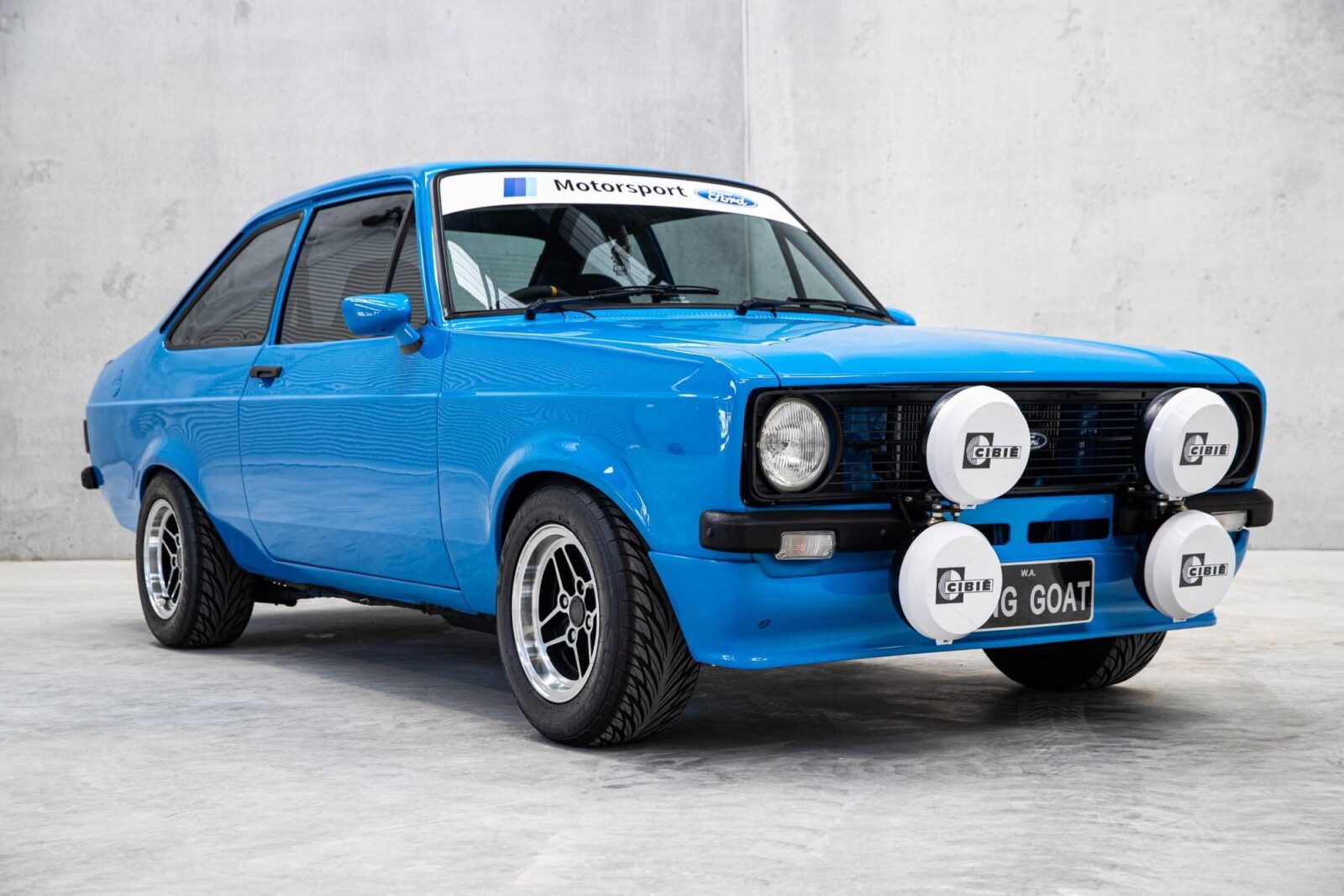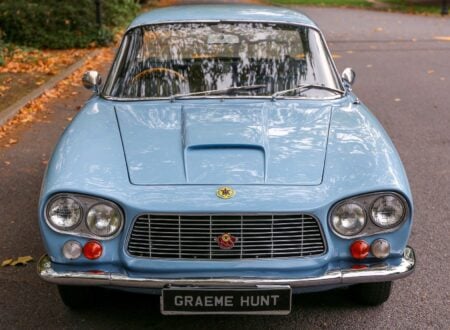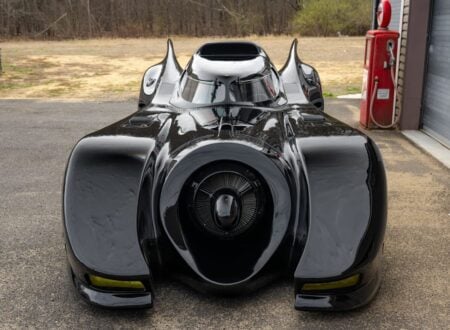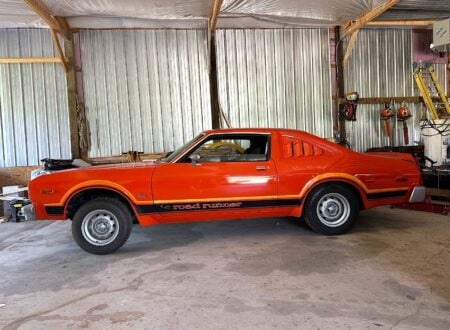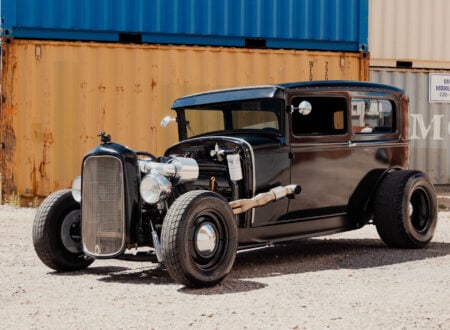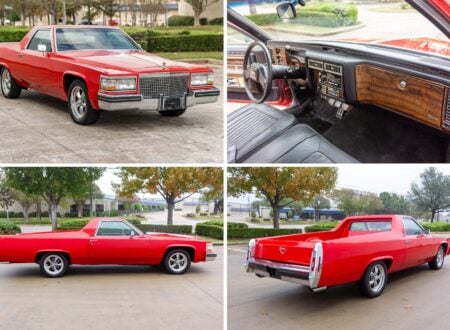This 1978 Ford Escort Mk2 has been painstakingly rebuilt from the ground up by its Australian owner, it’s powered by its original numbers matching 2.0 liter engine that has been significantly modified for improved performance.
The Ford Escort Mk2 was developed as the replacement for the Mk1 Escort, one of the most popular cars in Europe when it was in production and a famously successful car on the race tracks and rally stages of Europe.
Fast Facts – The Ford Escort Mk2
- The Ford Escort Mk2 was released in 1974 as a joint project between Fork UK and Ford Germany. It used the same fundamental inner unibody, drivetrain options, and running gear as the outgoing Mk1.
- The job of replacing the Mk1 Escort was a mammoth task, it became a legendary vehicle in its own lifetime and it became one of the most successful rally cars of all time.
- Though it looks vastly different to the Mk1 the Mk2 is much the same car under the outer body panels, and it continued the winning ways of the Mk1.
- Both Mk1 and Mk2 Escorts are now among the most beloved creations of Ford’s European operations in the 1960s and 1970s.
The Arrival Of The Escort
When the Ford Escort was originally released in 1968 as a replacement for the outgoing Ford Anglia it was a revelation. It had modern styling, a stiff unibody chassis, it had more powerful engine choices, and it came in two door, four door, and station wagon (estate) body options.
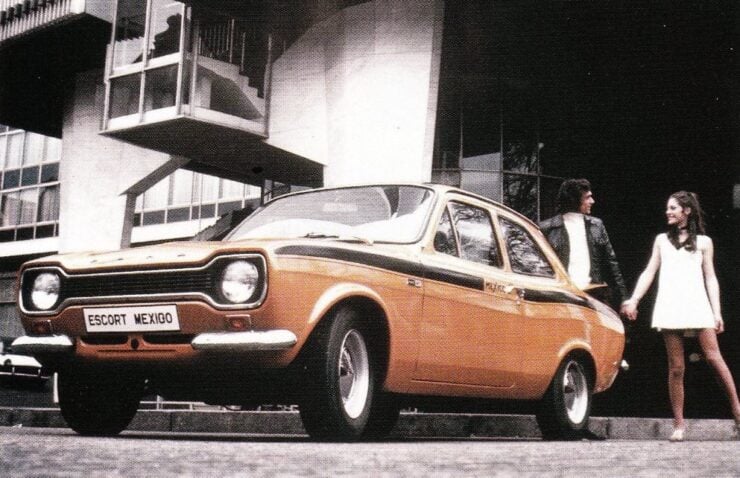

What nobody quite expected was just how successful the Escort would be in motorsport, rallying in particular. Over the course of its active years, from 1968 into the mid-1970s, the Mk1 Escort would win a slew of rallies ad races, becoming one of the most successful rally cars of all time in the process.
This success was in spite of the car’s relatively simple suspension arrangement, with MacPherson struts up front and a live axle on leaf springs in the rear.
Ultimately Ford would sell well over two million examples of the Mk1 Escort. By the mid-1970s it was clear that the stying was becoming dated and so a project was undertaken to release a new Escort that would be known as the Mk 2 or Mark II. The first Escort then became retroactively known as the Mk1.
Big Shoes To Fill – The Mk 2 Escort Arrives
The Mk 2 Ford Escort was introduced for sale in January of 1975 with all-new straight-edged styling that was much more in vogue in the mid-1970s.
Somewhat controversially they opted not to change much of the Escort under the new exterior body panels, it kept the same inner unibody and much to the chagrin of many it kept the same live axle on leaf spring rear suspension.
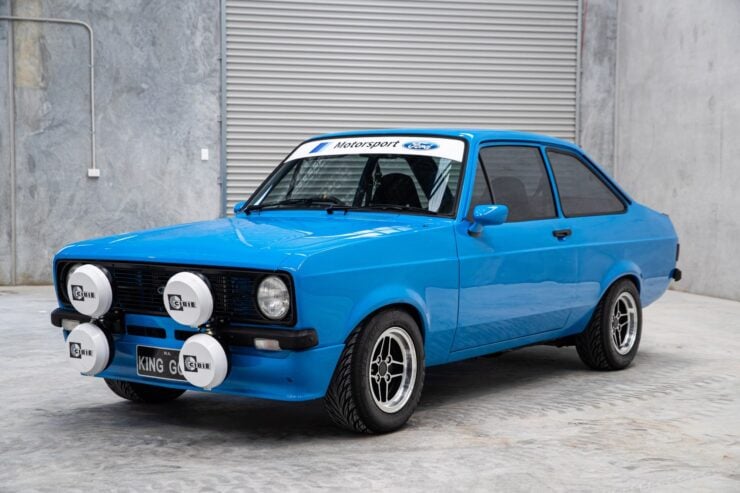

The same body options were offered as on the Mk 1, including a two door, four door, van back, and staton wagon. The original engine options were offered too, though they were expanded on during production, with larger and power powerful engines being offered including the popular Ford Pinto 2.0 liter and the 2.0 liter Cosworth BDG.
Despite the rapid developments that were being made in the world of rally racing in the 1970s the Ford Escort Mk 2 proved shockingly resilient, in the 1979 season of the World Rally Championship (WRC) the Mk 2 Escort won Ford the manufacturers’ title, with Björn Waldegård taking the drivers’ title in his Mk 2, followed by Hannu Mikkola in a Mk 2 in second place, and Ari Vatanen in a Mk 2 in fifth place.
Vatanen would win the drivers’ title in 1982 in a Mk2 against the might of the Audi Quattro, a remarkable feat of driving by any standard, and a good indication of just how brilliant a properly sorted Mk2 can be.
Ford would replace the Mk 2 with the third generation Escort in 1980, this was an all new car with an all new unibody and a front wheel drive layout rather than rear wheel drive. None of the Escorts that were released after the original Mk 1 and the Mk 2 ever achieved comparable levels of popularity with their forebears.
The 1978 Ford Escort Mk 2 Shown Here
During the production run of the Mk 2 Escort Australia had its own manufacturing facilities, and the model proved to be a best seller in the country and in neighboring New Zealand.
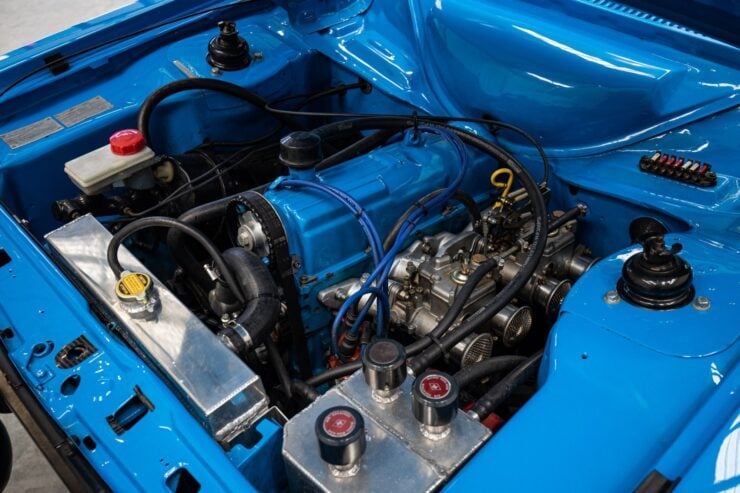

The Escort you see here was rebuilt in Australia to a high level over a period of years by its current owner. The steel unibody shell was soda blasted back to bare metal, any rusted sections were replaced with new steel panels, it was then resprayed in Nitrous Blue.
The original 2.0 liter Pinto inline-four cylinder engine has been rebuilt to a high level with an uprated FR32 cam kit, twin FAJS (Weber replica) 48mm carburetors, wrapped tubular steel headers, a three-core alloy radiator, a new clutch, starter motor, and fuel pump.
The car has been fitted with new trims and rubber throughout, it has quad Cibie spot lights mounted up front, and it has carbon front quarter bumpers, a carbon rear bumper, and a carbon duck lip spoiler on the back.
It now rides on JBW RS4 13 inch alloy wheels with new Federal Super Steel tires. Inside it has a three-spoke Momo steering wheel, Recaro bucket seats, carbon door cards, and a custom dash with an aftermarket cluster.
This Escort is now being offered for sale through Collecting Cars in a live online auction, if you’d like to read more about it or register to bid you can click here to visit the listing.
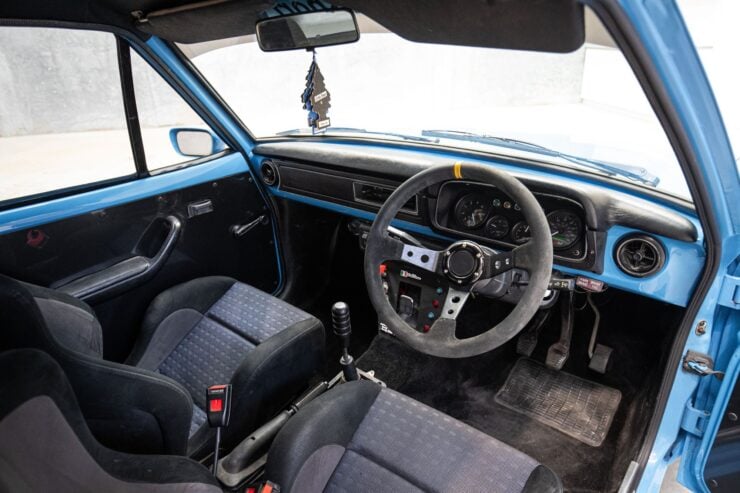
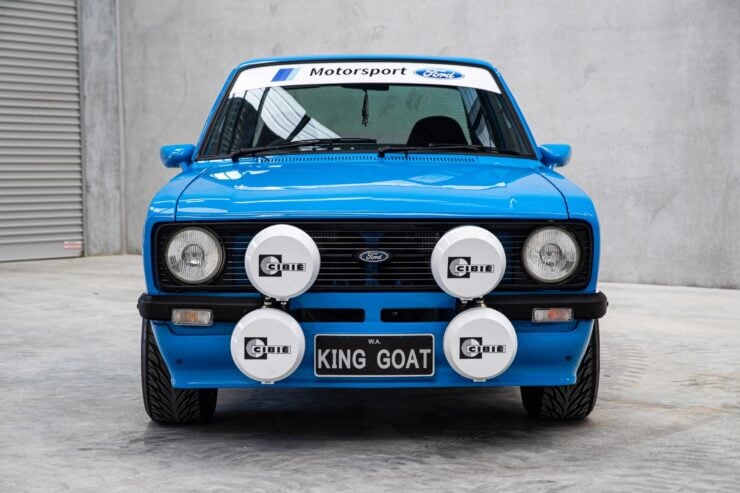
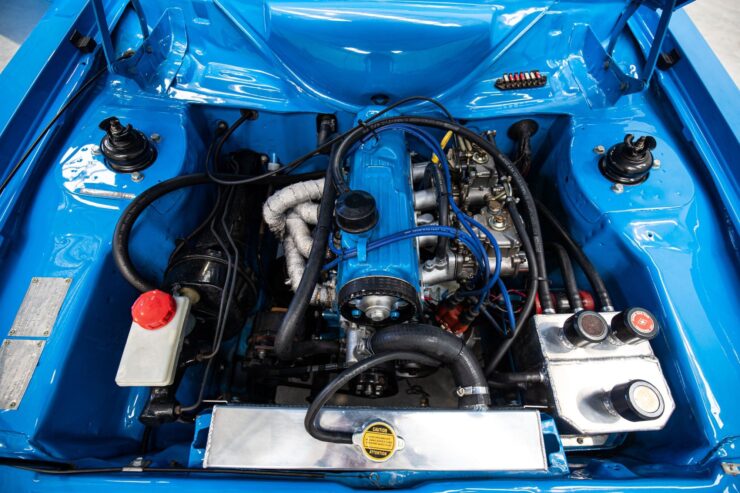
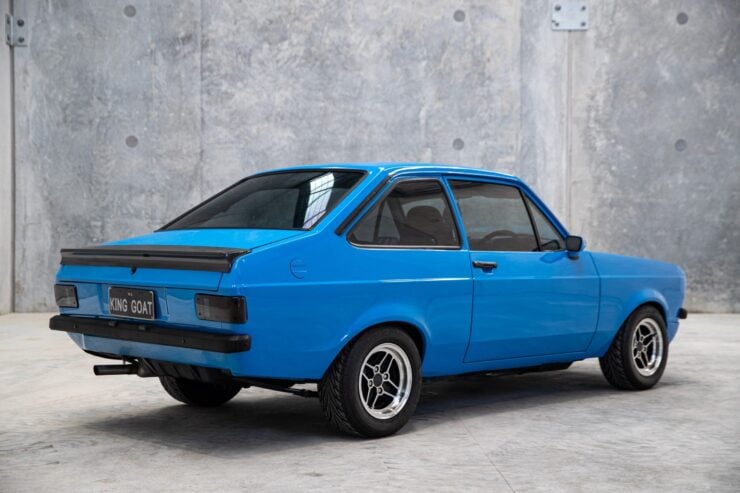

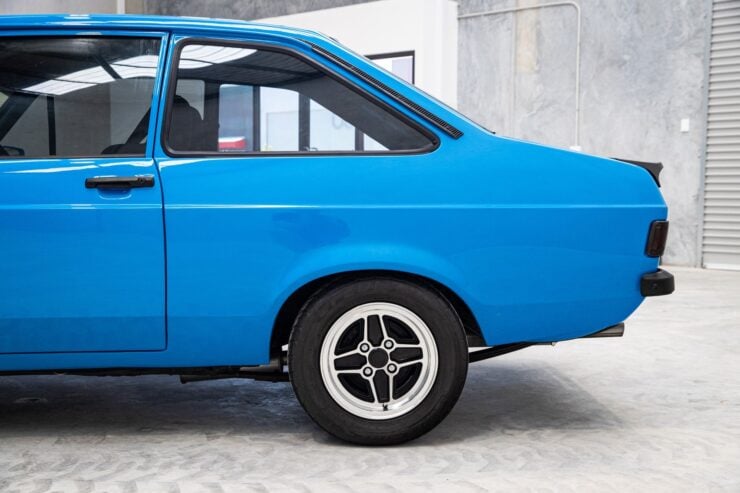
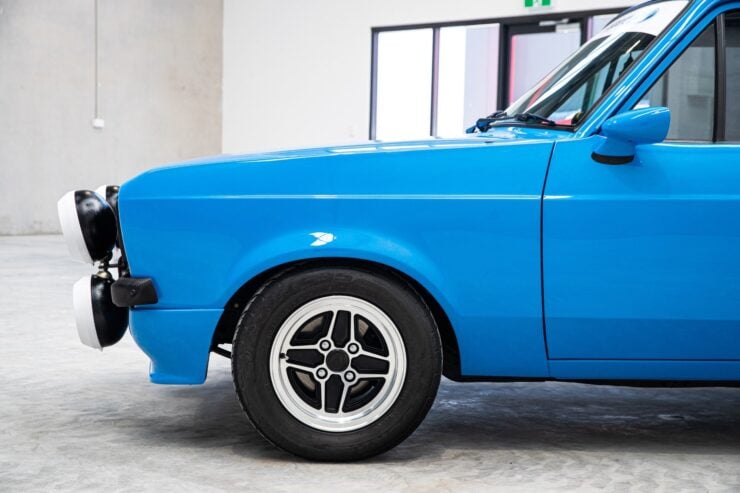
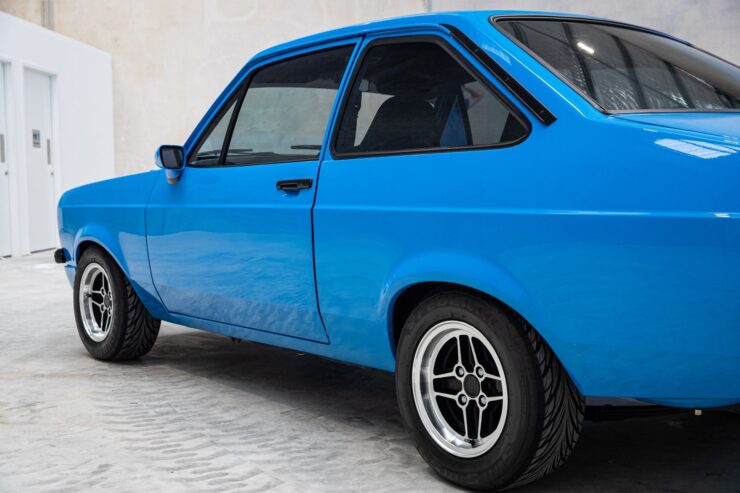
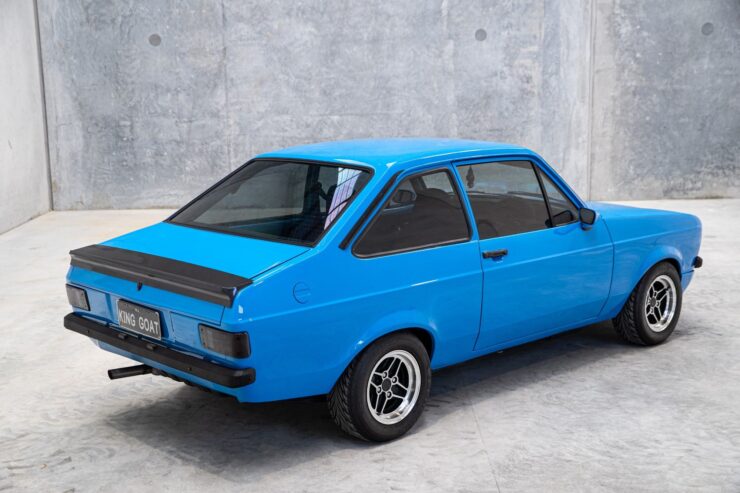
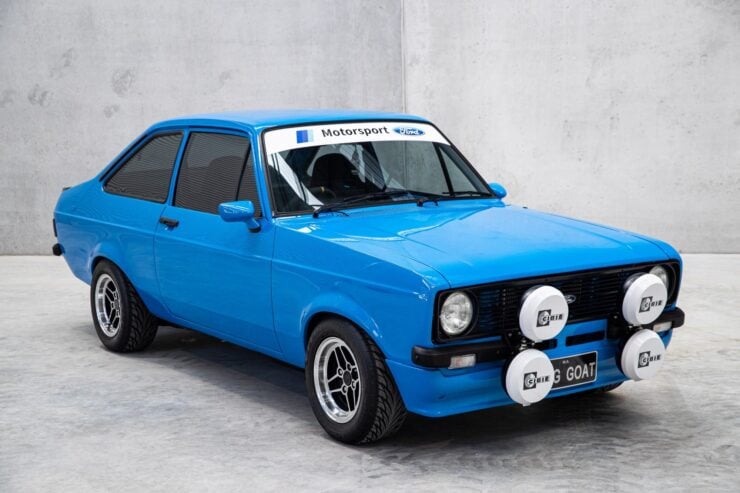
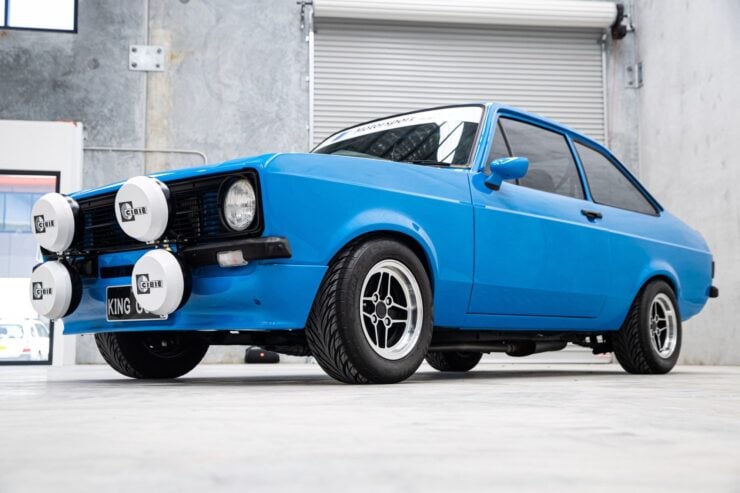
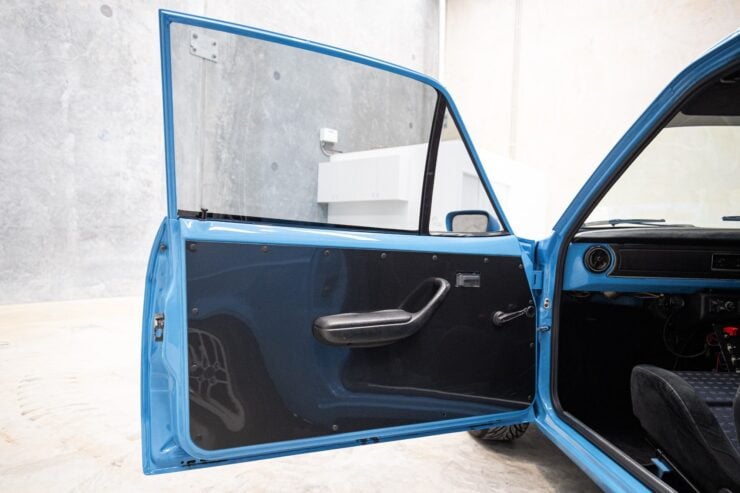
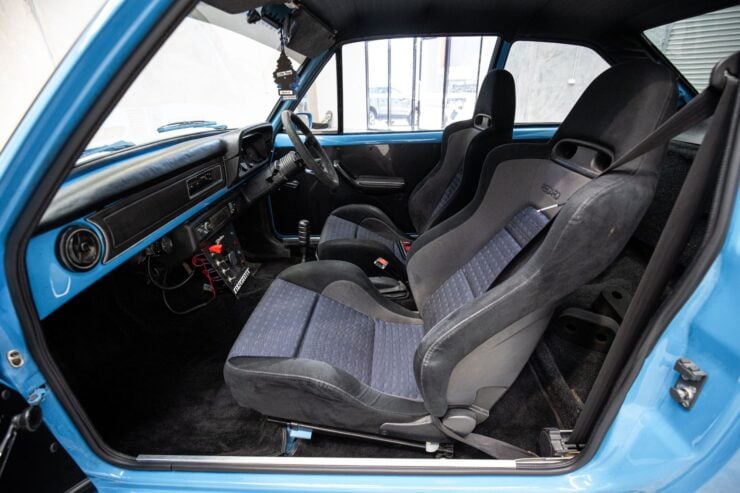
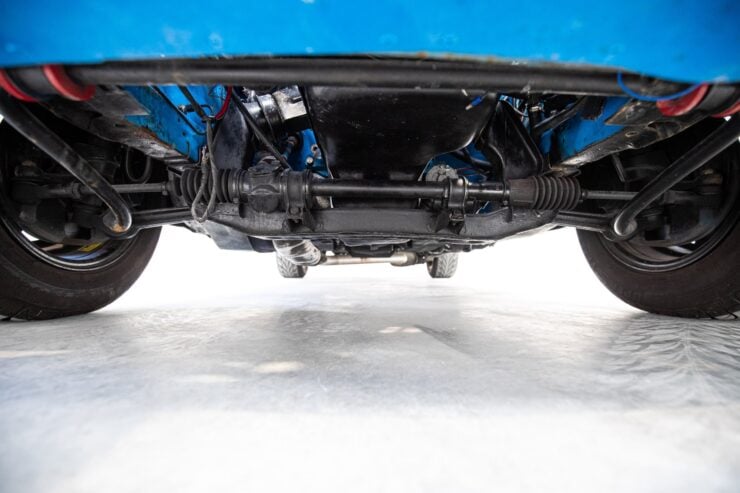
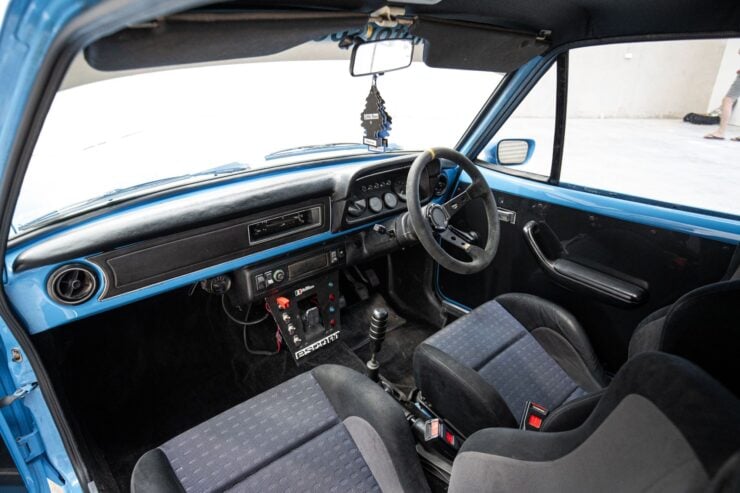
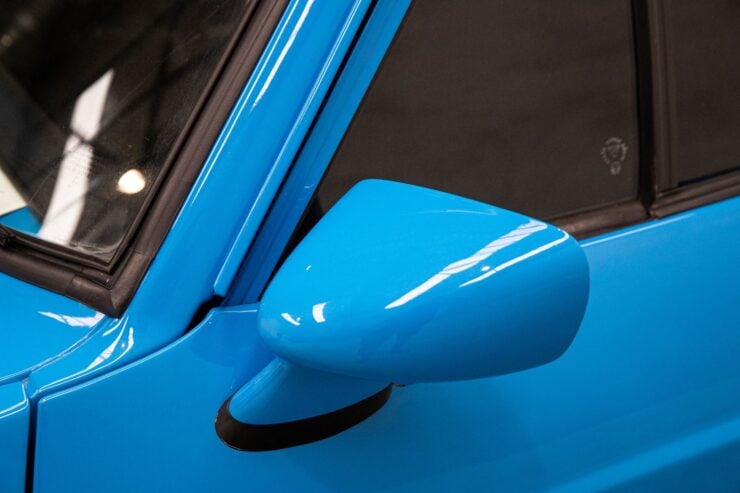
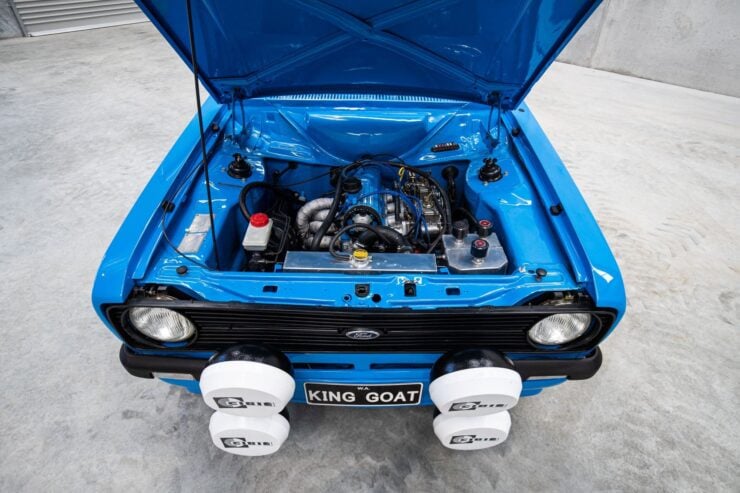
Images courtesy of Collecting Cars

